Connect
Receive email updates on our exhibitions, events and more
Extended! Reopening January 16 – May 25, 2025
Initial Run: September 8 – November 10, 2024
Located on Manila Road in the unincorporated community of Lathrop, California, the Filipino Farm Center served as an important hub for Filipino farm owners and their families who lived in the area from the 1940s to the 1960s.
In December 2023, a group of descendants of the Filipino families that lived, worked, or were active members of the Farm Center convened to share old photographs and fond memories. The families requested that their memories/stories be recorded and documented to preserve the Farm Center’s history and to share this important part of Filipino American history with the wider community. Now, in partnership with the San Joaquin County Historical Museum, their desire is becoming a reality in the new exhibit, The Forgotten History of the Filipino Farm Center.
Through photos and artifacts, as well as firsthand accounts recorded by videographer Louis Ambriz, visitors will learn about the history of Filipinos in California and San Joaquin County, the factors that lead to the formation of the Farm Center, its active years, and its legacy which lives on today through the lives of those who were there.
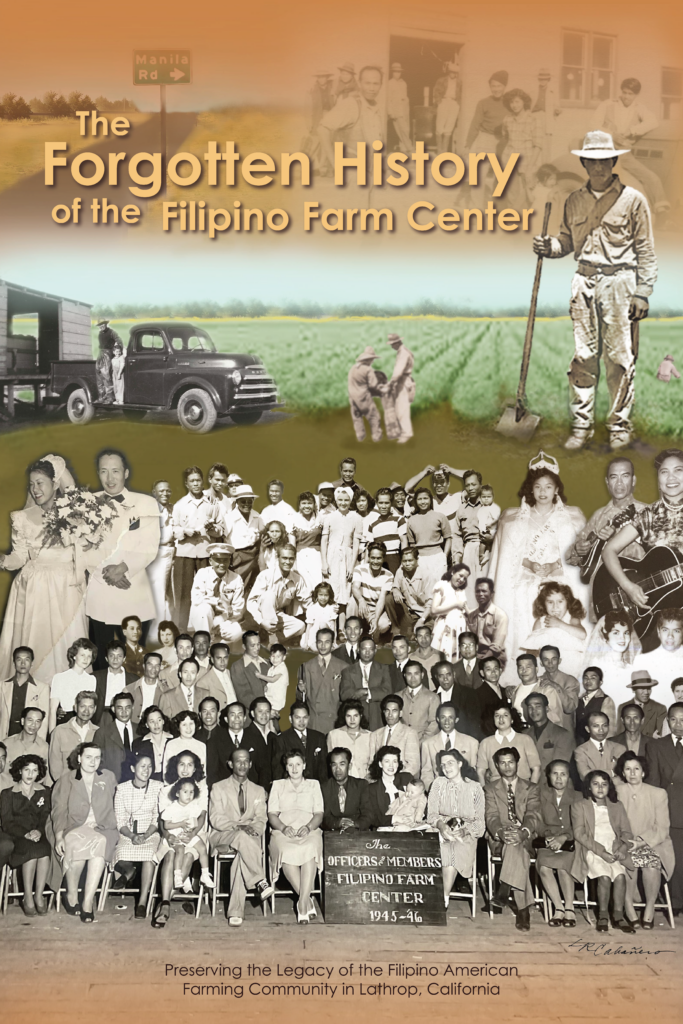
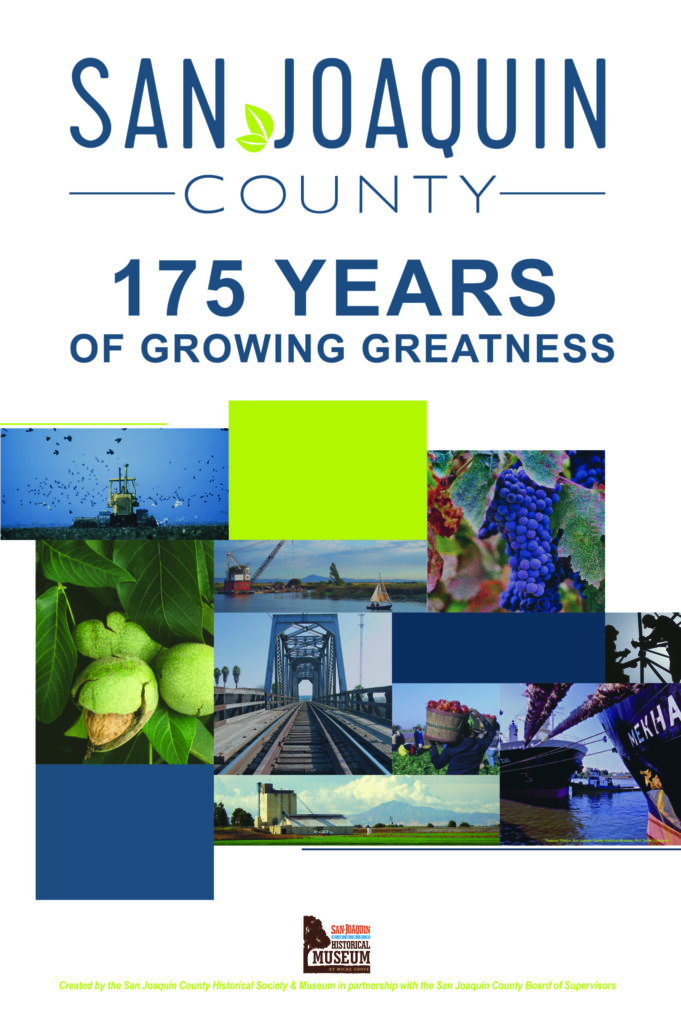
Opening June 21, 2025
San Joaquin County is one of the most diverse and fertile counties in California. From the earliest days of its native inhabitants to becoming a center of modern industry and agriculture, San Joaquin County’s story has always been one of the relationships between its land, water, and people.
Through photos, artifacts, and historic documents, this new exhibit will dig deep into the past to tell the stories of San Joaquin County’s history. Learn about the communities, events, and innovations that made San Joaquin County vital to the development of the modern world, and let’s be inspired to continue growing greatness, together.
San Joaquin County: 175 Years of Growing Greatness was created by the San Joaquin County Historical Museum in partnership with the San Joaquin County Board of Supervisors.
Featured images: San Joaquin County Historical Museum, Rich Turner Collection

June 22 – August 18, 2024
Abuelita’s Kitchen features 10 indigenous, mestiza, Mexican-American, and Afro-Mexican grandmothers who have cooked, preserved, and passed on Mexican food culture while creating communities and cultures that are unique to Southern California.
Through a documentary film, audio stories that can be accessed with QR codes, photographs, kitchen artifacts, and family recipes, this exhibit reveals each abuela’s unique relationship to Mexican cuisine, their birthplaces in Mexico, and their current homes in the City of Los Angeles.
The stories of Mexican and Mexican-American women have too often been absent from the walls of museum collections. Documenting the histories and family recipes of women who are immigrants, undocumented, and non-English-speaking, enriches our understanding of the valuable contributions of Mexican and Mexican-American women to the culture of Los Angeles and Southern California.
The themes of identity, place, and food culture are central to this exhibit.
“Abuelita’s Kitchen: Mexican Food Stories” was developed by
USC professor Sarah Portnoy with support from California Humanities and LA
Plaza de Cultura y Artes. The exhibition tours through Exhibit Envoy, a
nonprofit.
(Exhibit description courtesy of Exhibit Envoy)
February 23 – May 26, 2024
Since its founding in 1850, San Joaquin has been a county on the move. Through captivating photographs from the Museum’s archives, San Joaquin on the Move will take you back in time to see how different forms of transit and transportation have kept our county moving forward; from cars and boats to trains, planes, and everything in between!
San Joaquin on the Move, a curated pictorial history of transit and transportation in San Joaquin County, will be on view in the Helen Weber Kennedy Gallery from February 23 through May 26, 2024.

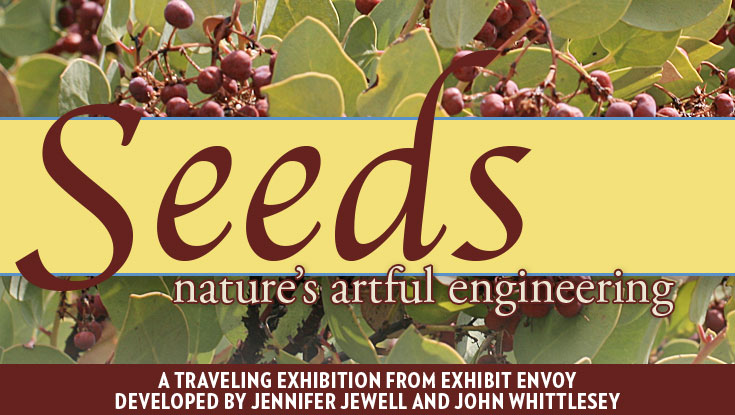
August 4 – October 15, 2023
Seeds: Nature’s Artful Engineering is an exhibit vividly portraying the incredible diversity, ingenuity and beauty of seed dispersal mechanism of plants native to California. Seeds and their dispersal mechanisms are one of the final stages in the evolutionary biology of flowering plants. Against many, many odds they are the final step in ensuring the survival of plant life. The exhibit is based around 30 + high-resolution, close up photographs of the seed structures and dispersal mechanisms of California native plants taken in the wild and in garden settings by Northern California plantspeople and naturalists, John Whittlesey and Jennifer Jewell.
Seeds aims to increase awareness and appreciation of the beauty, diversity, ingenuity and critical importance of seeds and their dispersal mechanisms in California native plants. Through large, detailed photographs and supplemental materials, this exhibit introduces viewers to a wide range of seed dispersal mechanisms and their valuable roles in the environment, ensuring species survival, diversity, and seed banks for the future.
The exhibition explores:
(Exhibit description courtesy of Exhibit Envoy)
June 3 – July 30, 2023
Through My Father’s Eyes: The Filipino American Photographs of Ricardo Ocreto Alvarado is a collection of 50 photographs chosen from more than 3,000 discovered by his daughter, Janet Alvarado after his death. This exhibit offers a rare view into the daily lives of Filipino Americans in the post-World War II era.
Ricardo Alvarado emigrated to the United States from the Philippines in 1928, part of the early 20th-century wave of immigrants known as the ‘Manong Generation,’ meaning ‘older brother’ in the Ilocano language. He served in the Pacific Theater with the U.S. Army’s First Filipino regiment during World War II. When the war ended, Alvarado supported his passion for photography by working as a civilian cook at San Francisco’s Letterman Hospital in the Presidio. For more than 20 years following the war, Alvarado documented postwar Filipino American life. His poignant photographs capture every aspect of day-to-day activities, public and private.
When he died in 1976, he left behind a rich trove of historically significant and visually arresting images, yet they remained hidden until his daughter, Janet Alvarado, found his collection of nearly 3,000 photographs and recognized their importance. She formed The Alvarado Project to ensure that her father’s unique record of Pinoy life would be preserved and would receive the attention it deserves. Now, an updated version of Through My Father’s Eyes begins a new tour to celebrate the 20th anniversary of its first installation.
Through My Father’s Eyes features the works of Ricardo Ocreto Alvarado and is toured by Exhibit Envoy in partnership with History San Jose and the Alvarado Project. The exhibit originally toured through the Smithsonian Institution Traveling Exhibition Service.
(Exhibit description courtesy of Exhibit Envoy)
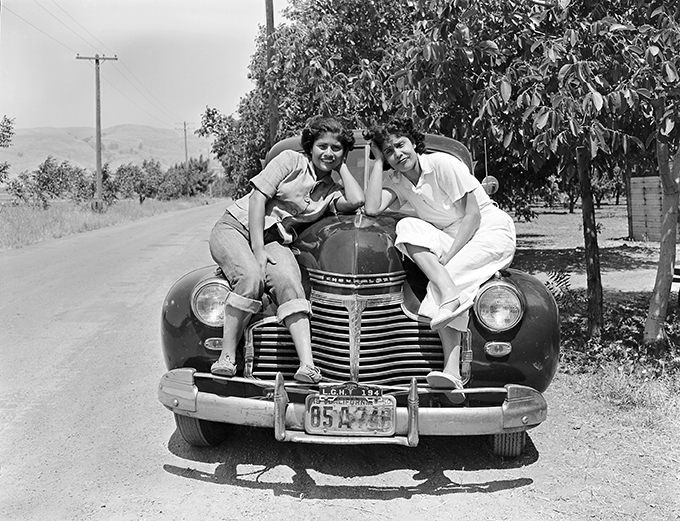
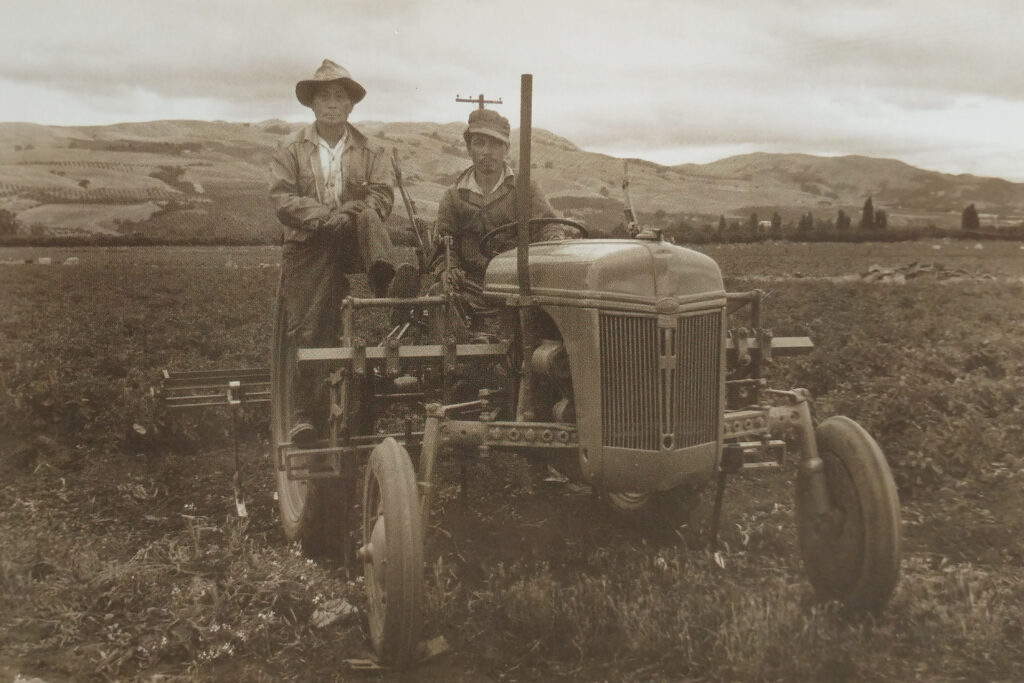
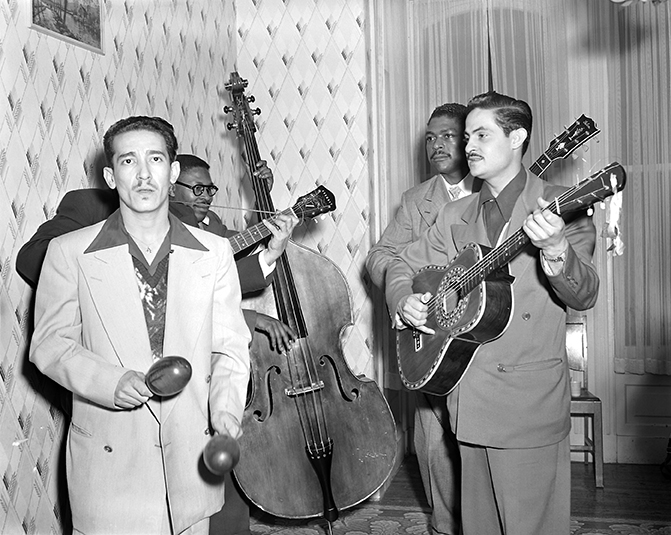
Photographs by Ricardo Ocreto Alvarado
January 28 – April 2, 2023
Starting during the Gold Rush and continuing through today, Black Californians have been part and parcel of rural areas. In this free-standing banner exhibit, little-known stories of African American farmers, ranchers, and rural residents challenge myths about California history.
While it is widely recognized that many Black people who migrated to California moved into booming cities, African Americans are not strangers to rural California. Rural Black residents opened schools, worked the land, and exercised vigilance about the equal rights of citizens. Over successive migrations in the 19th- and 20th-centuries, generations settled in agricultural and rural areas from as far north as Siskiyou County, to the Central Valley, to the Imperial Valley in the South.
We Are Not Strangers Here: African American Histories in Rural California is a collaboration between the Cal Ag Roots Project at the California Institute for Rural Studies;Susan Anderson of the California African American Museum;the California Historical Society; Exhibit Envoy; and Dr. Caroline Collins, Post-Doc Researcher from UC San Diego. This project was made possible with support from California Humanities, a non-profit partner of the National Endowment for the Humanities, and the 11th Hour Projectat the Schmidt Family Foundation.
(Exhibit description courtesy of Exhibit Envoy)
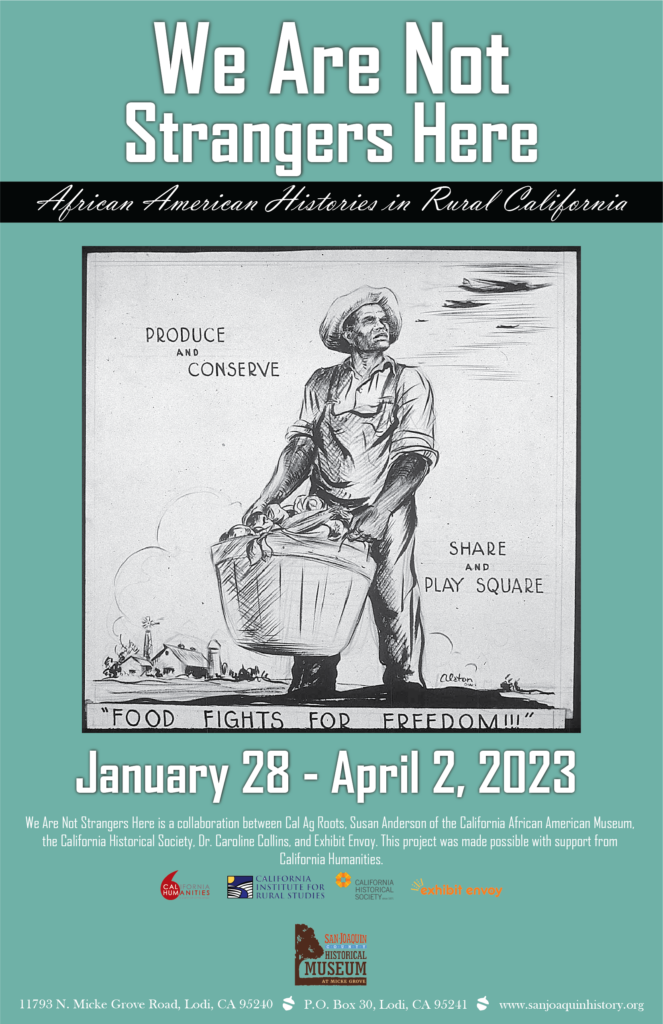

August 20 – October 16, 2022
Pollinators: Keeping Company with Flowers is an exhibit portraying the relationship between flowers and pollinators. The exhibit is based around 70-some photographs of pollinators in wild and garden settings, primarily taken by Northern California plantsman and naturalist, John Whittlesey. These images vividly portray the intriguing lives of many kinds of pollinators. While many people recognize the European honeybee as an important pollinator, Keeping Company with Flowers primarily highlights native pollinators, which play a key role in the ecology of California.
Pollinators: Keeping Company with Flowers aims to increase awareness and appreciation of the incredible beauty and diversity of pollinators in California. Of the 4,000 known bee species in the US, 1,600 occur in California. Through close-up photographs and supplemental materials, this exhibit introduces a diversity of pollinators, the various processes of pollination, the needs of pollinators, the obstacles their populations are facing, and what can and is being done to support them.
June 11 – August 7, 2022
While many may think of tattoos as a recent trend, inked women have a long history in California. From the working-class Tattooed Ladies who performed in circus sideshows to the upper-class inked women who helped popularize the tattoo craze; visitors will discover the largely unknown history of women and tattoos through photographs, personal histories, and artifacts.
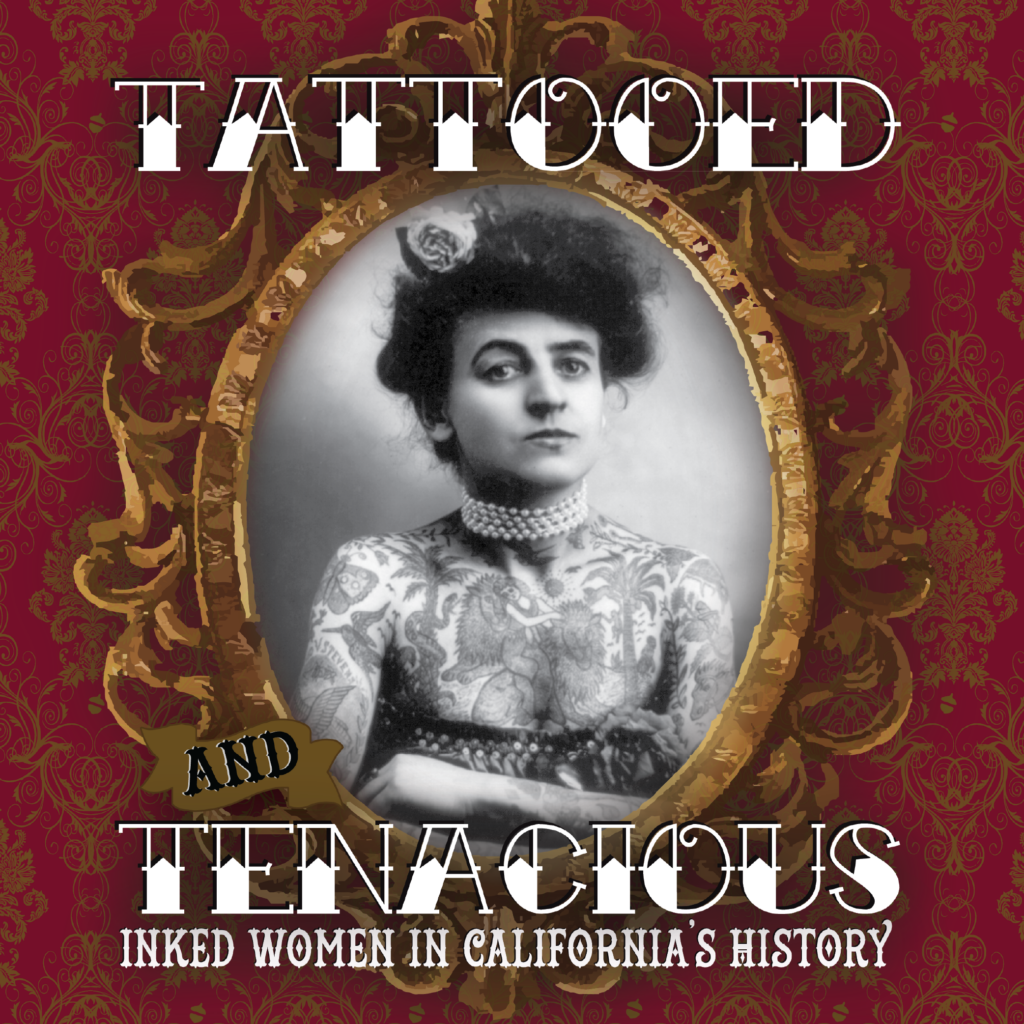
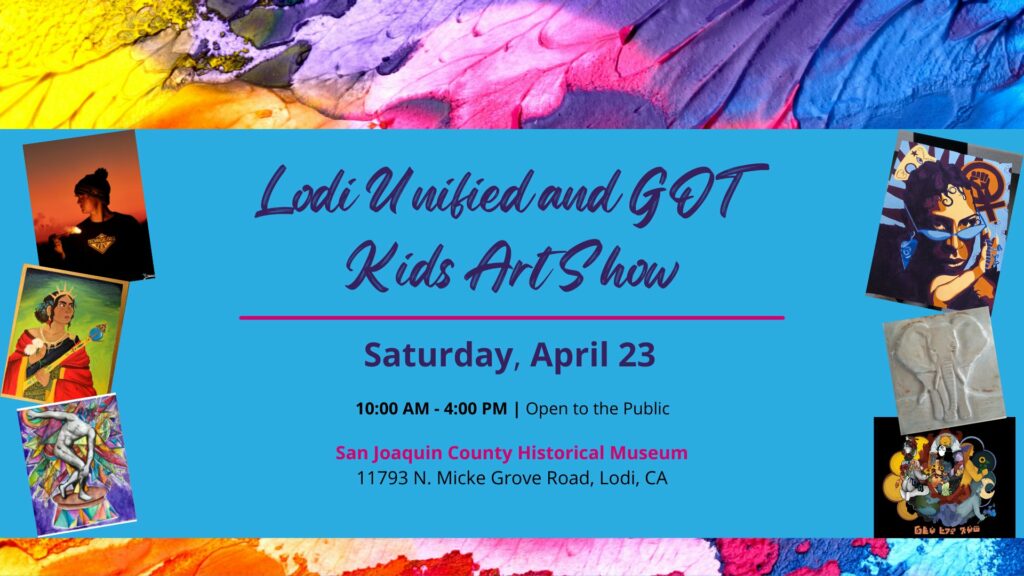
April 23 – May 31, 2022
The Museum is proud to partner with Lodi Unified School District and GOT Kids to present their spring 2022 Art show. Featuring art made by students in grades 9-12, this multi-medium competition has something for everyone including photography, painting, and sculpture.
The winning pieces of this year’s contest will be installed in the Helen Weber Kennedy Gallery from April 23-May 31.
To see past winners, click HERE
FEBRUARY 16 – APRIL 10, 2022
In the Fields of the North/En los campos del norte is a powerful photographic exhibit about the lives of migrant farm laborers, now on display at the San Joaquin County Historical Museum. Through a series of evocative photographs by David Bacon and supplemented by artifacts from the Museum’s collection, this exhibit highlights the lives of farm workers as they travel from the Mexican border north to the state of Washington, harvesting fruits and vegetables throughout the growing season. Thanks to the generous support of El Concilio and the Community Foundation of San Joaquin, this exhibit will be on display until April 10th.
In the Fields of the North/En los campos del norte sheds light on some basic questions: How much do we know about the lives of the people who feed us? Where do they live? How does it feel to do some of the hardest repetitive labor imaginable? And, what answers do farm workers themselves have to end their poverty and endless migration?
In the Fields of the North/En los campos del norte features the works of David Bacon; is produced in partnership with the California Rural Legal Assistance, the Binational Front of Indigenous Organizations, and History San José; and is touring the U.S. through Exhibit Envoy.
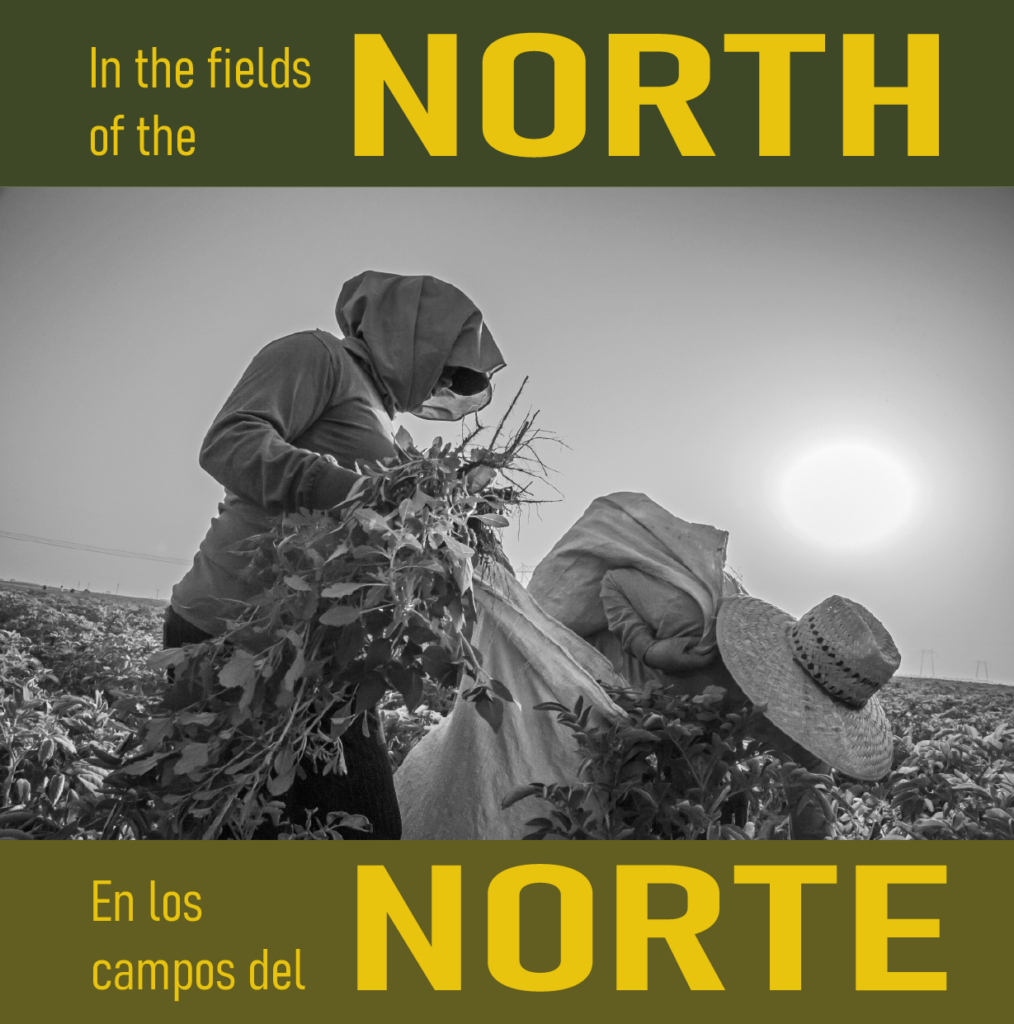
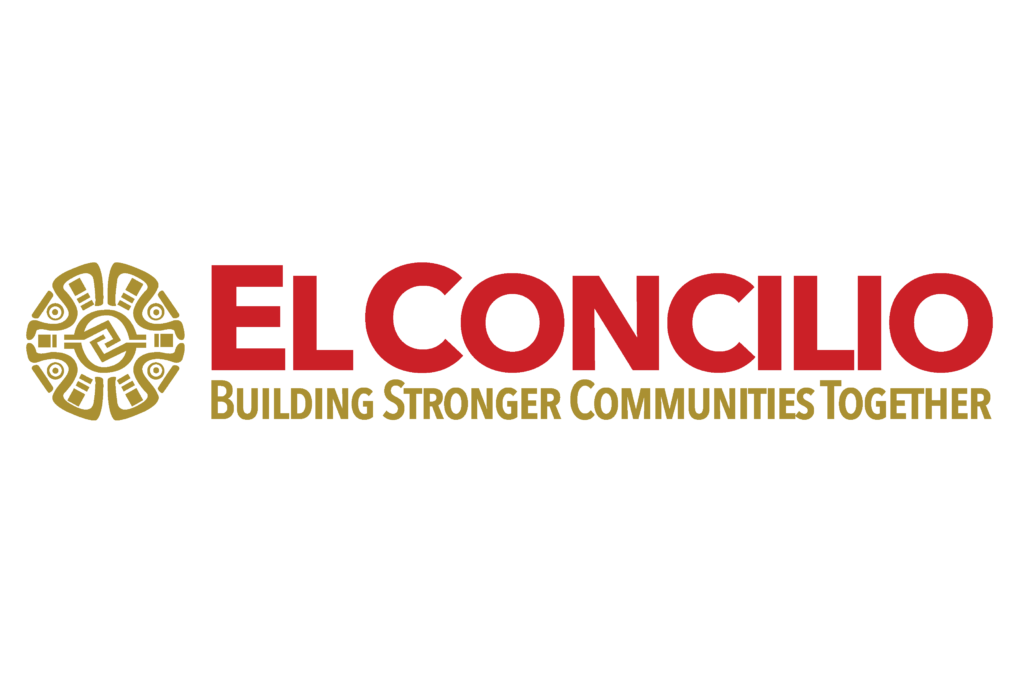
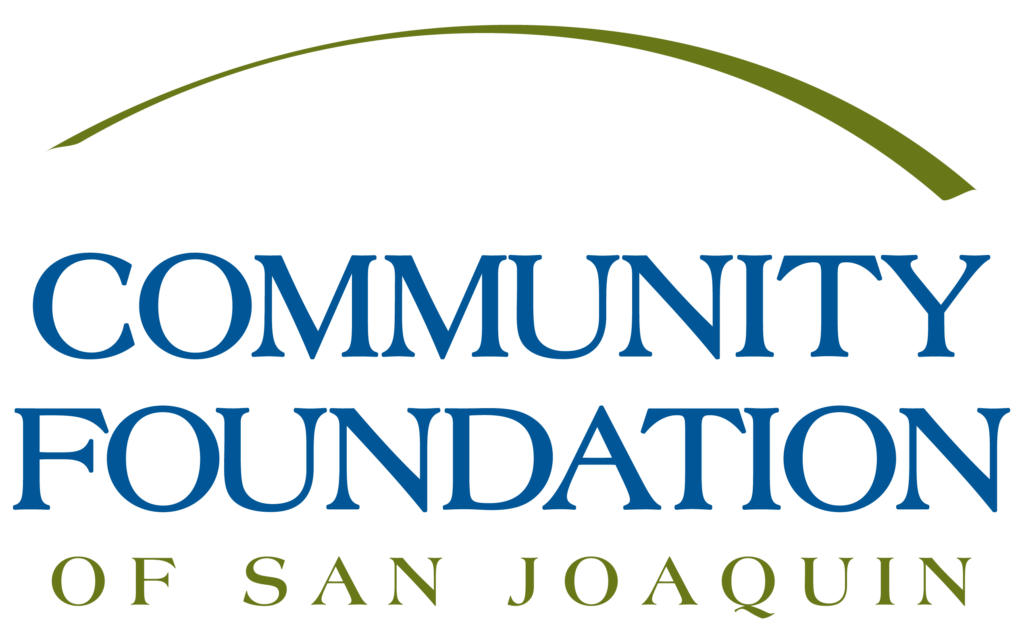
Subscribe to our carefully curated newsletter to receive the latest news and events delivered to your inbox. No spam.

Registered 501(c)3 – #94-1636086

Registered 501(c)3 – #94-1636086